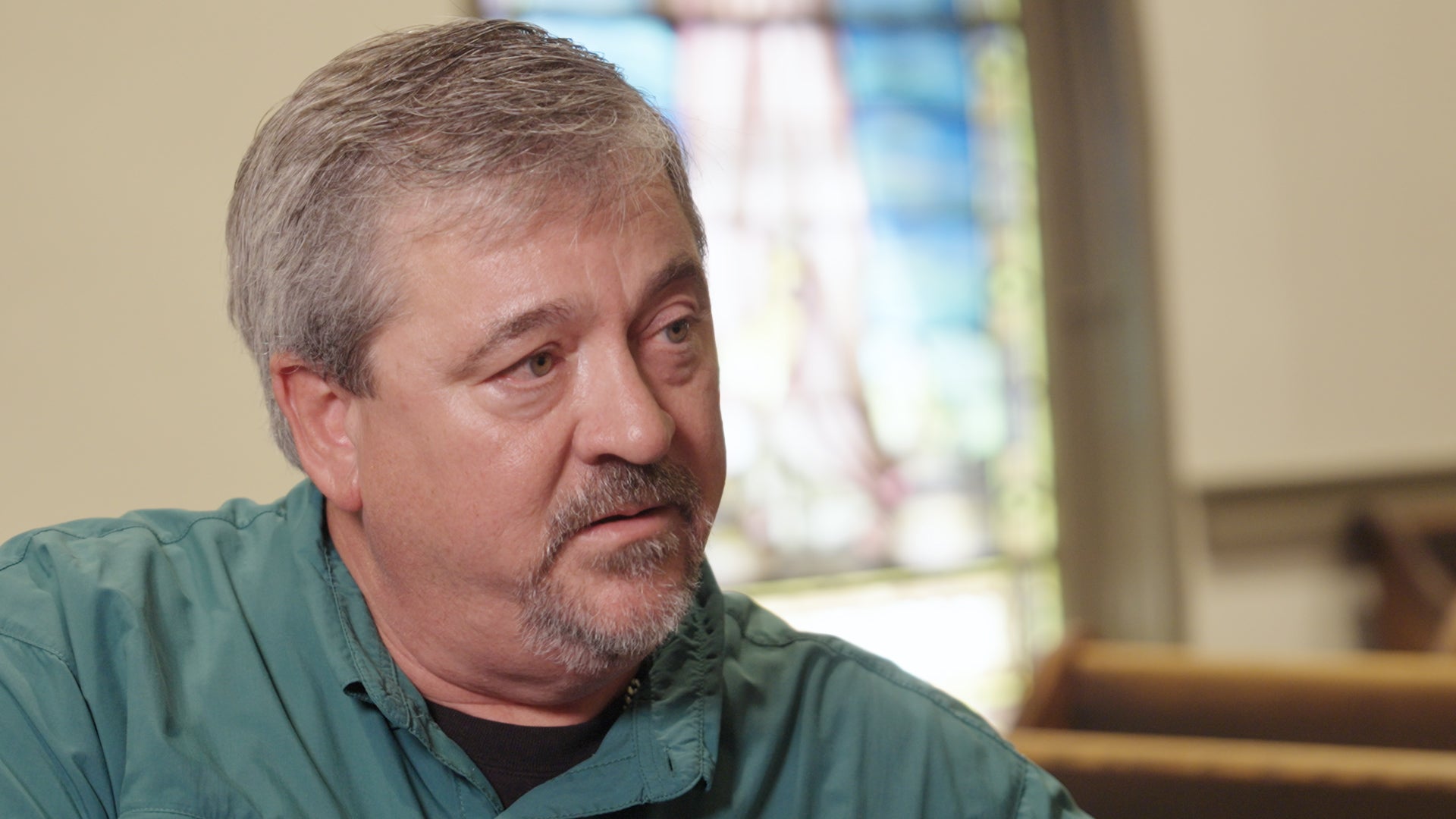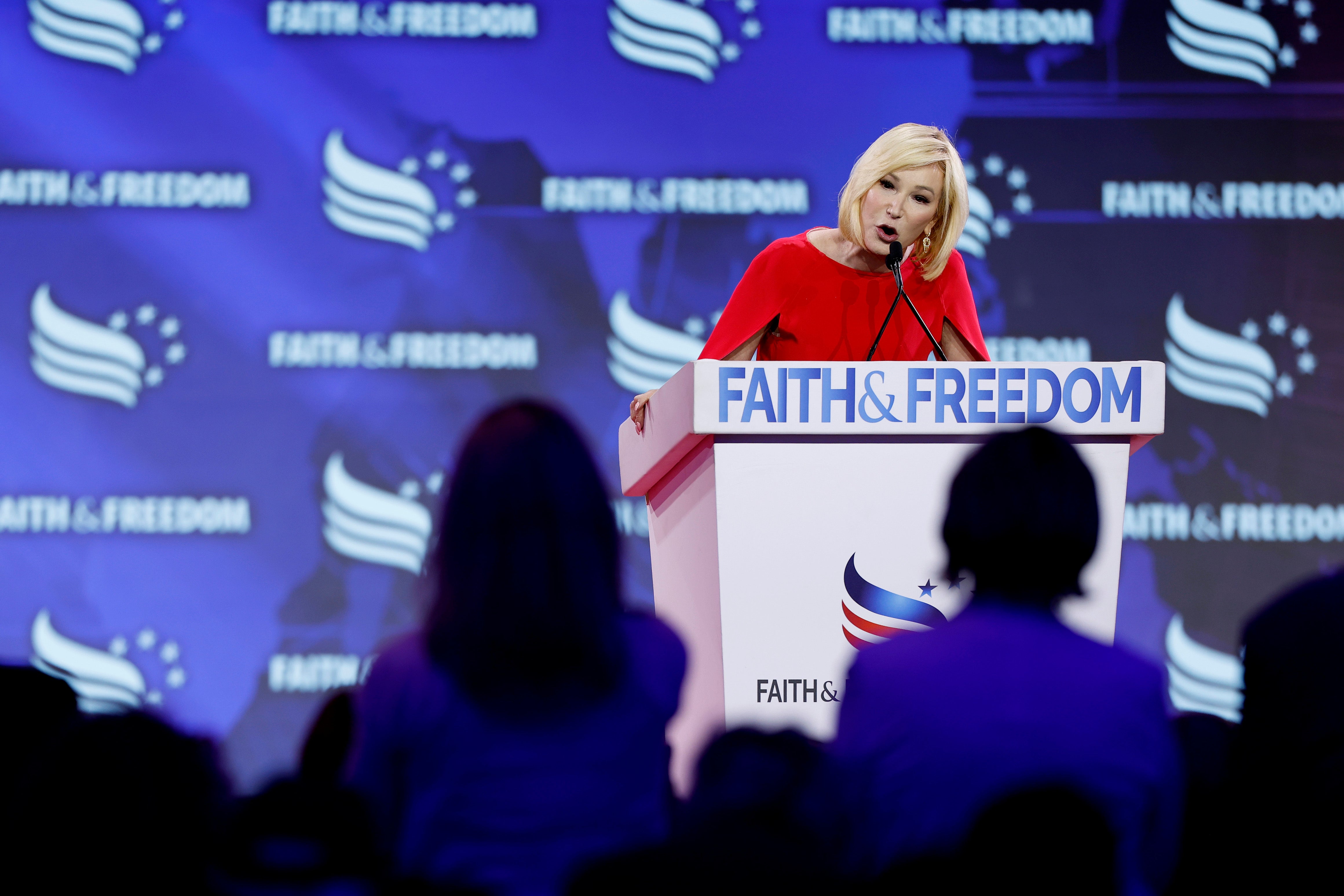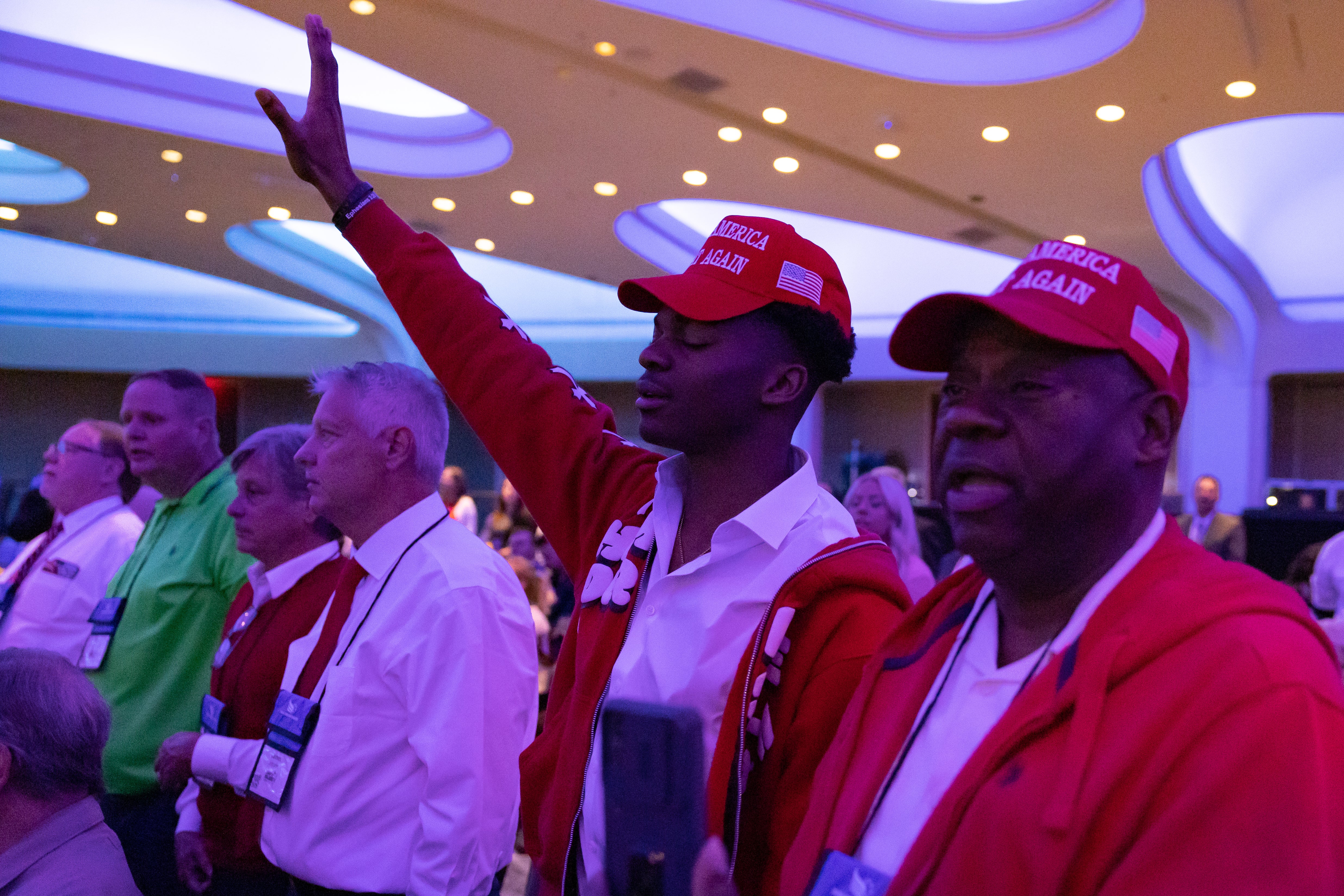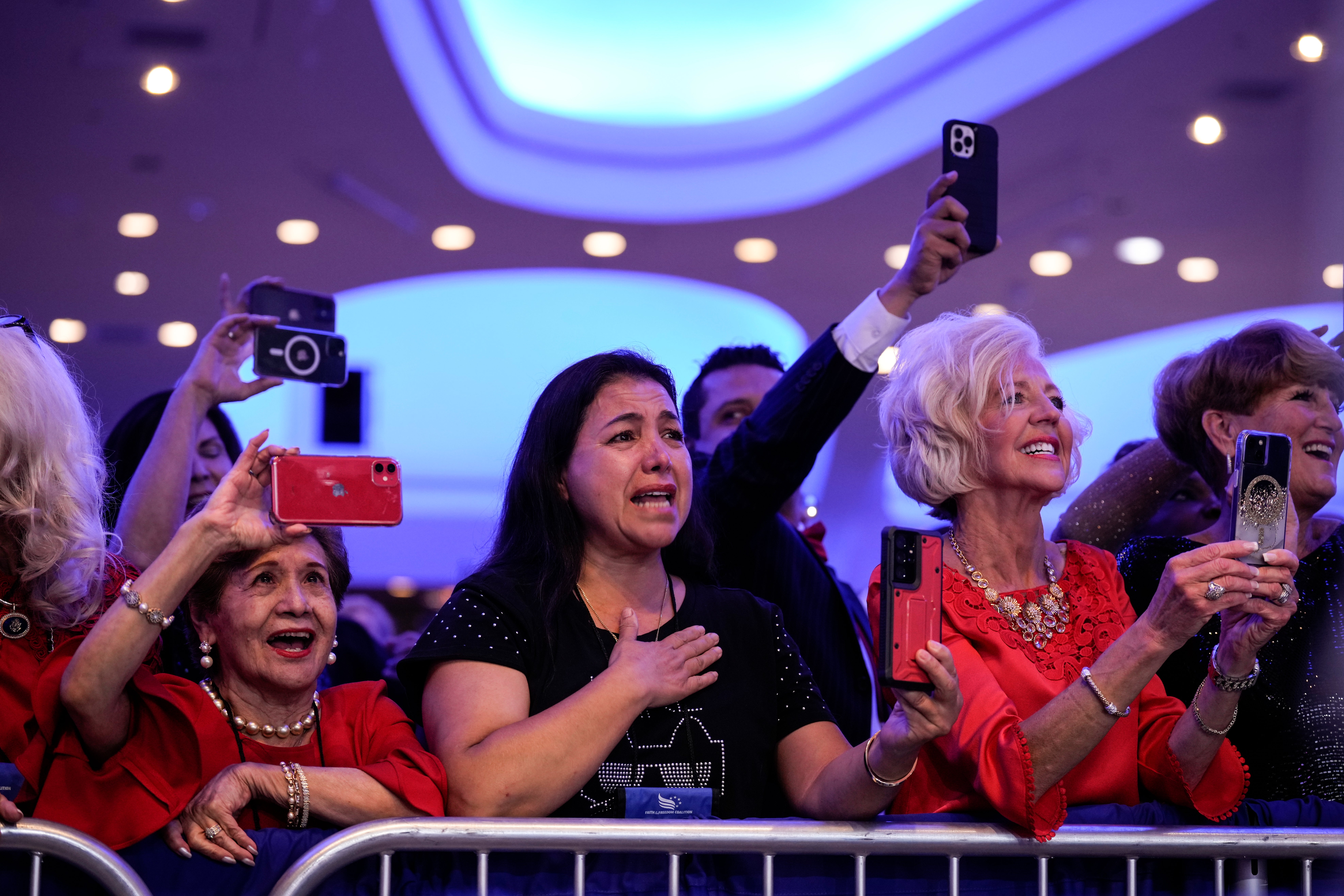‘Devil, we’ve had enough’: Inside the Christian nationalist movement to outlaw abortion
Evangelical activists spent decades using the levers of power and the courts to enforce an anti-abortion agenda. Pro-democracy Christian groups and pastors are pushing back, Alex Woodward reports
Your support helps us to tell the story
From reproductive rights to climate change to Big Tech, The Independent is on the ground when the story is developing. Whether it's investigating the financials of Elon Musk's pro-Trump PAC or producing our latest documentary, 'The A Word', which shines a light on the American women fighting for reproductive rights, we know how important it is to parse out the facts from the messaging.
At such a critical moment in US history, we need reporters on the ground. Your donation allows us to keep sending journalists to speak to both sides of the story.
The Independent is trusted by Americans across the entire political spectrum. And unlike many other quality news outlets, we choose not to lock Americans out of our reporting and analysis with paywalls. We believe quality journalism should be available to everyone, paid for by those who can afford it.
Your support makes all the difference.This story is part of an investigative series and new documentary, The A-Word, by The Independent examining the state of abortion access and reproductive care in the US after the fall of Roe v Wade.
In 2016, Donald Trump pledged to appoint justices to the Supreme Court who would overturn Roe v Wade.
Eight years later, voted out of office and campaigning to return to the White House, and buoyed by his fulfilled prophecy of a Supreme Court that revoked a constitutional right to abortion, Trump returned to a crowd of right-wing Evangelical Christians to once again ask for their vote.
“You have to go with your heart,” Trump told the crowd at the Faith and Freedom Coalition’s June conference. “But you have to also remember: you have to get elected.”
Four months later, powerful figures within America’s far-right Evangelical movement and the architects of the modern Christian nationalist movement are wrestling with his position on abortion.
Christian nationalists spent nearly 45 years steering Republican politics into this moment, but the movement’s crowning achievement is now a political liability. Trump won’t publicly endorse a national abortion ban, pivoting instead to saying that those decisions are now up to individual states.
Trump repeatedly lies that doctors are killing babies to perform “after birth” abortions and tells his supporters to stand for “innocent life”. Those words come straight from the language of anti-abortion activists and a right-wing Evangelical movement that has looked to Trump to continue what they see as a biblical call to arms to defend the “unborn”.
Yet the Supreme Court’s decision is overwhelmingly unpopular, and a vast majority of Americans don’t want the government interfering in their reproductive healthcare.

Meanwhile, the Christian nationalist movement – driven by a belief the US was, is, and forever should be a Christian nation, with Christianity embedded in all aspects of law and society – has a foothold in federal, state and local governments and a home within Republican politics.
Trump may be trying to avoid answering if he will sign a national abortion ban, should such legislation ever reach his desk, if elected president again. But the Republican Party’s official platform has already embraced the idea that states can establish so-called fetal personhood through the Constitution’s 14th Amendment, which grants equal protection under the law to all American citizens.
Right-wing Evangelical Christians are taught that human life begins at conception, eliminating any line between abortion and infanticide. Embedding that into law could threaten not only abortion access but IVF and contraception.
At least 19 states already have some form of fetal personhood laws on the books.
Trump may also be trying to distance himself from Project 2025’s plans for the next Republican administration – which call for the adoption of personhood language for fetuses, banning widely used abortion drugs, and blocking enforcement of federal law that requires hospitals to perform abortions in emergencies. But anti-abortion lawmakers are already adopting those ideas at the state level. A Christian nationalist blueprint to criminalize abortion is in play “irrespective of who is in the presidency,” according to Skye Perryman, president of nonpartisan democratic advocacy group Democracy Forward.
“There is no credible claim that [Trump] is going to somehow protect reproductive healthcare,” she tells The Independent.

Kevin Riggs, a pastor from Franklin, Tennessee, grew up in a “very, very conservative denomination” in a state where the official book is the Bible, and in a community that is the seat of power for a vast network of influential right-wing Christian groups.
The largely white Nashville suburbs of Williamson County hold some of the wealthiest communities in the state, with a sea of powerful Christian-based publishing houses, music labels, ministries and mega-churches.
A growing overlap between Evangelical churches, big business, politics and entertainment – driven by an all-encompassing belief that inextricably links America’s constitutional democracy to their religious views – has put Franklin and its surrounding areas at the nexus of a modern American Christian nationalist movement, according to Riggs.
“I grew up very much in a denomination that basically became a one-issue voter,” he tells The Independent’s documentary The A-Word, released this week.
Now, he considers himself a “unicorn”.
“It’s really hypocritical to say you’re pro-life when actually all you are is pro-birth,” Riggs says. “You’re not pro ‘taking care of the child once they’re born.’ … There’s no protection. You can’t be pro-life and anti-universal healthcare.”

Christian nationalism is often referred to as a religious movement, but it is decidedly a political one, according to Paul Brandeis Raushenbush, an ordained Baptist minister and president of Interfaith Alliance.
“A framework where religious groups are opposing abortion and secular groups or women’s groups are promoting abortion, and it becomes a kind of binary between two forces – that paints a completely wrong picture,” he tells The Independent. “Our religious diversity is by design, because we don’t have an established religion, which is the genius of our Constitution and the First Amendment. We don’t have an established dogma.”
Interfaith Alliance has argued that access to abortion care is vital for religious liberty, ensuring that no one religious group can impose its views on all Americans. A Christian nationalist agenda, which relies on the levers of power and the courts to explicitly enforce that ideology, subverts that idea, Raushenbush says.
“They can’t win on public opinion, so they try to win in the courts,” he adds.

A sweeping 2024 study from the Public Religion Research Institute sought to explore the strength of the ties between white Christian nationalism and Trump’s base.
The survey sought to gauge whether respondents believe God has called on Christians to exercise dominion over American society; whether the government should designate America a Christian nation; whether being a Christian is an important part of being an American; and whether the US would cease to be a country without Christianity.
The results found that three in 10 Americans can be considered Christian nationalist adherents or sympathizers, but two-thirds are skeptics or reject the tenets of Christian nationalism entirely.
Nevertheless, those minority beliefs wield disproportionate power through Republican politics. A majority of Republicans – 55 percent – and fully two-thirds of white Evangelicals qualified as Christian nationalist adherents or sympathizers, according to the survey.
Televangelist Paula White-Cain – a faith adviser in the Trump White House – told the crowd at June’s Faith and Freedom conference that their political rivals have mounted “an attack on our faith, our beliefs, Christianity, upon every person of faith”.
“But I believe there are people in this room that are going to stand up and say, ‘Devil, we’ve had enough,’” she said. “This is an ideology that is against God, against our faith and against our rights, and we will put a stop to it this November if every Christian gets up and they vote.”
The movement, she said, “has been praying” for a President Trump.
“He asked me, ‘What does God say?’” she said. “And I said, ‘Sir, you’re going to be president one day.’”

The end of constitutionally-protected abortion access was a decades-in-the-making victory for an anti-abortion movement that has shaped the modern Republican Party.
As right-wing special interest groups motivated single-issue voters into a powerful GOP base, drafted anti-abortion legislation, and then defended those laws in court, Republican lawmakers promoted a so-called “pro-life” message while working to stack the federal judiciary with ideologically like-minded figures who could clear a path to ending Roe.
The result: a radically reshaped judiciary, and a conservative majority on the nation’s highest court, prepared to undo 50 years of precedent.
What became a concerted effort to politicize abortion in the wake of the Supreme Court’s 1973 decision in Roe v Wade emerged from a right-wing movement in fierce opposition to civil rights progress – one that galvanized conservative Christian groups without invoking race.
In 1984, Americans United for Life convened a national conference to develop a strategy to overturn Roe. Dozens of anti-abortion groups began to gain outsized influence within state legislatures, where “family”-focused Christian-based groups could press the “pro-life” agenda locally.
Before he became House Speaker and second in line for the presidency, Louisiana congressman Mike Johnson helped draft legislation aimed at regulating abortion providers. For nearly a decade before he became a rising star in Republican politics, he was an attorney with Alliance Defending Freedom – the same right-wing Christian legal group that persuaded the Supreme Court to overturn Roe.
In 2022, Johnson sponsored legislation in Congress to ban abortion nationally.
He now concedes that such legislation is unlikely to ever make it through Congress, echoing Trump’s claim that the issue is best left up to the states.

The Faith and Freedom Coalition is spending tens of millions of dollars on get-out-the-vote campaigns targeting Evangelical Christians, and the group’s founder Ralph Reed, who wrote The Christian Case for Trump, has called Trump the “most pro-life advocate we’ve ever had sitting behind the resolute desk, sitting in the Oval Office”.
“He delivered for us,” he told the Christian Broadcasting Network. “This is about the sanctity of life. If they stay home, then they don’t deserve to have this victory. They don’t deserve to have leaders like that.”
Albert Mohler, president of the Southern Baptist Theological Seminary, said Trump’s opaque public statements about abortion care are now “basically daring the pro-life movement to turn on him”.
“I have no idea what Donald Trump really believes about abortion,” he told The New York Times.
“Donald Trump is either gonna win or lose this election,” he added. “And I think it’ll, in large part, be on this question in terms of the intensity with which conservative voters, pro-life voters, either vote for him or don’t. And that’s my warning.”
Faithful America has warned that the anti-abortion Project 2025 framework is “as based in theocracy and the Christian nationalist twisting of faith as it is based in far-right political revenge”, according to Reverend Nathan Empsall.
“It is a roadmap to roll back a century of progress and return to a time when the only people who had civil rights were straight, white Christian men,” he said in a statement to The Independent announcing the group’s campaign to warn voters about Christian nationalism ahead of November elections.
“Despite its false claims of its policies being ‘biblically based,’ Project 2025’s authoritarianism is a complete contradiction of Jesus’s teachings of love, equality, and peace, as well as the antithesis of democracy and the US Constitution,” he added.

Christian nationalists have seen Trump’s political ascent as God’s will, adopting the authoritarian and apocalyptic campaign of revenge against those who wronged him.
“The only thing worse than war is holy war,” Pastor Riggs tells The Independent.
“When you’re using violence because you think this is what God has asked you to do, I mean… I don’t know how you fight against that,” he adds. “If people believe that God has called Trump to be president, if he doesn’t win again, then the whole country has gone against God’s word.”
In the meantime, Riggs says his job “is to build the kingdom of God here, which is built on love and sacrificial service and nonviolence, not power”.
Additional reporting by Bel Trew and Julia Saqui

Join our commenting forum
Join thought-provoking conversations, follow other Independent readers and see their replies
Comments